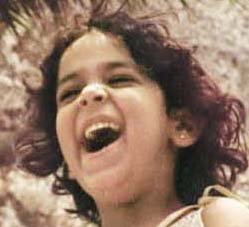 As a 12-year-old, Venice had made a great impression on me. The stone foundations loomed straight out of the water, music pervaded the canals, and there were arched bridges everywhere. I liked nothing better than standing on a bridge, head hanging down, watching the boats go under and out of my vision, listening to the songs of the gondoliers.
As a 12-year-old, Venice had made a great impression on me. The stone foundations loomed straight out of the water, music pervaded the canals, and there were arched bridges everywhere. I liked nothing better than standing on a bridge, head hanging down, watching the boats go under and out of my vision, listening to the songs of the gondoliers.Earlier this month, I revisited that memory. Standing atop a bridge, looking at the reflection complete the arch and make a circle in the water. And the line of boats floating through that circle, making the reflection ripple. But the music was different. A Chinese boatman’s song, its cadence like a heartbeat, falling and rising with a reassuring regularity.
 That weeping willow-lined canal, and the old houses beside it, is part of the Venice of the East. The name belongs to the city of Suzhou and the small townships around, that are well known as the few remaining water townships in China. But development and progress have taken the water out of Suzhou, leaving behind only the ancient private gardens and tall, modern buildings.
That weeping willow-lined canal, and the old houses beside it, is part of the Venice of the East. The name belongs to the city of Suzhou and the small townships around, that are well known as the few remaining water townships in China. But development and progress have taken the water out of Suzhou, leaving behind only the ancient private gardens and tall, modern buildings. It is only in smaller townships like Zhou Zhuang and Tong Li that fragments of an old way of living have been lovingly preserved. Though often you wonder if the preservation has come at a harsh cost — the houses along the canals have become shops, selling painted likenesses of the town, flutes, jewellery, tea sets, and the locally grown Grandma’s Tea. There are new houses being built along the canal, but they’re mostly vacation condos, part-time homes for the rich of Shanghai.
It is only in smaller townships like Zhou Zhuang and Tong Li that fragments of an old way of living have been lovingly preserved. Though often you wonder if the preservation has come at a harsh cost — the houses along the canals have become shops, selling painted likenesses of the town, flutes, jewellery, tea sets, and the locally grown Grandma’s Tea. There are new houses being built along the canal, but they’re mostly vacation condos, part-time homes for the rich of Shanghai. But, then again, if you look around carefully, you’ll find that under the veneer of commercialisation, life does continue in the old way. In the way the lady at the teashop scurries to her house in a back alley to fetch fresh snacks; in the older, nuder boats that you spot in side canals, so different from the ones ferrying tourists up and down. And long after you’ve left, the boatman’s melody will replay in your head, and you’ll know that it’s rising and falling cadence has always been that way.
But, then again, if you look around carefully, you’ll find that under the veneer of commercialisation, life does continue in the old way. In the way the lady at the teashop scurries to her house in a back alley to fetch fresh snacks; in the older, nuder boats that you spot in side canals, so different from the ones ferrying tourists up and down. And long after you’ve left, the boatman’s melody will replay in your head, and you’ll know that it’s rising and falling cadence has always been that way. A version of this will be published in the Hindustan Times tomorrow





 O
O









